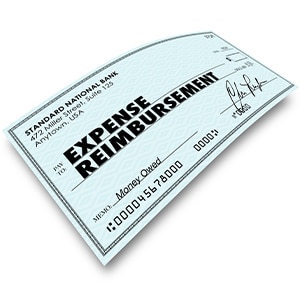
Posted Sunday, December 29, 2024
An Accountable Plan, under Treasury Regulations Section 1.62-2(C)(2), allows a business to reimburse an employee for expenses incurred in connected with the performance of duties for the business provided proper substantiation is followed (receipts, mileage logs, home office proof, the usual stuff). The substantiation rules are the same for taxpayers in general, but with an Accountable Plan, the “enforcer” is technically the business.
Here are some expenses from Chapter 1, Subchapter B, Part VI: Itemized Deductions for Individuals and Corporations that you might find interesting-
| Trade or business expenses | Section 162 |
| Interest expense | Section 163 |
| Taxes | Section 164 |
| Bad Debts | Section 166 |
| Depreciation | Section 167 |
| Cost recovery | Section 168 |
| Amortization of lease acquisition costs | Section 178 |
| Section 179 expensing | Section 179 |
| Start-up expenditures | Section 195 |
This is a very abbreviated list.
The typical reimbursed expenses through an Accountable Plan are home office use including depreciation, mileage or business-use portion of automobile expenses, cell phone and internet. All these expenses have one thing in common- they are mixed used, both personally and business. Mixed-use expenses should be paid by the employee and later reimbursed. Conversely, anything that is 100% business use should be paid for directly by the business.
The following is saying the same thing, but in bullet form-
- 100% business- Paid by the business, from the business checking account.
- 100% personal- Paid by you, from your personal checking account.
- Mixed- Paid by you, and reimbursed by the business for the business portion.
Of course, if you are reaping some huge cash back or travel deals with your personal credit card, then by all means charge the 100% business use items to your personal card and run those expenses through an Accountable Plan.
Sidebar: The IRS and credit card businesses are butting heads over the rebate programs. It is an ascension of wealth and could technically be taxable income. Whoa! Yup, and the IRS would like 1099s to be issued to show the income. Today, these credit card rebates are considered a reduction in purchase price. This will be battled for the next decade for sure.
Remember that as an S corporation owner, you are both a shareholder and an employee. Therefore, when you are being reimbursed you are being reimbursed as an employee and not as a shareholder.
Also, recall that with the Tax Cuts & Jobs Act of 2017, unreimbursed employee expenses and anything else that was deductible subject to the 2% adjusted gross income limitation are gone after 2017. Therefore, some of this argument is moot and essentially makes deducting expenses at the corporate level and getting reimbursed all that more important… well, since it is the only option.
An Accountable Plan is easy to do, is a great way to pull money out of the business and reduces the amount of taxes paid. Keep in mind too that by reducing your overall net ordinary business income you are also reducing one of the criteria for the reasonable salary testing, and this in turn possibly decreases your salary (and subsequent Social Security and Medicare taxes). A win-win scenario.
Make life easy, get an Accountable Plan. Make life even easier, have us prepare this corporate document and the associated corporate governance documents. WCG charges $150 which includes consultation on how to leverage the most from it.
Wanna Talk About Your Small Business?
Please use the form below to tell us a little about yourself, and what you have going on with your small business or 1099 contractor gig. WCG CPAs & Advisors are small business CPAs, tax professionals and consultants, and we look forward to talking to you!

